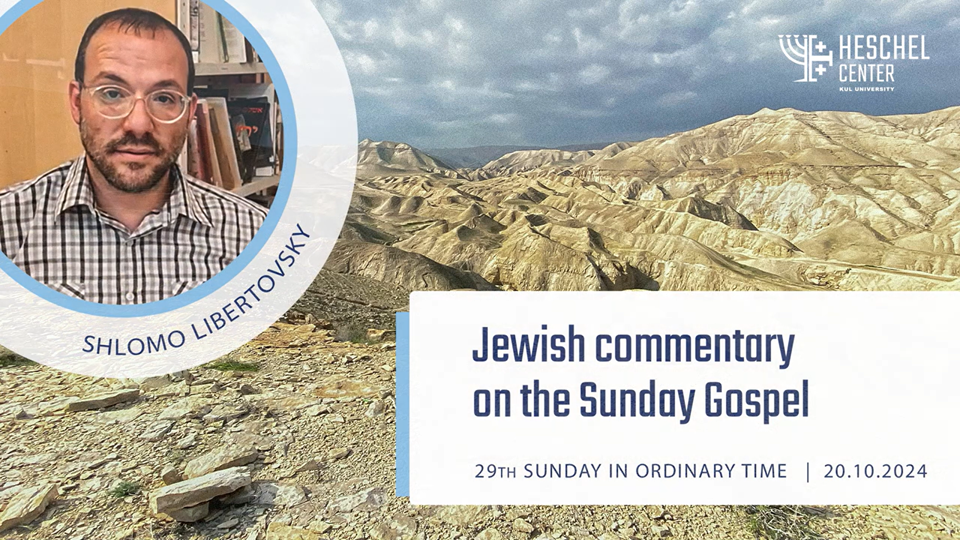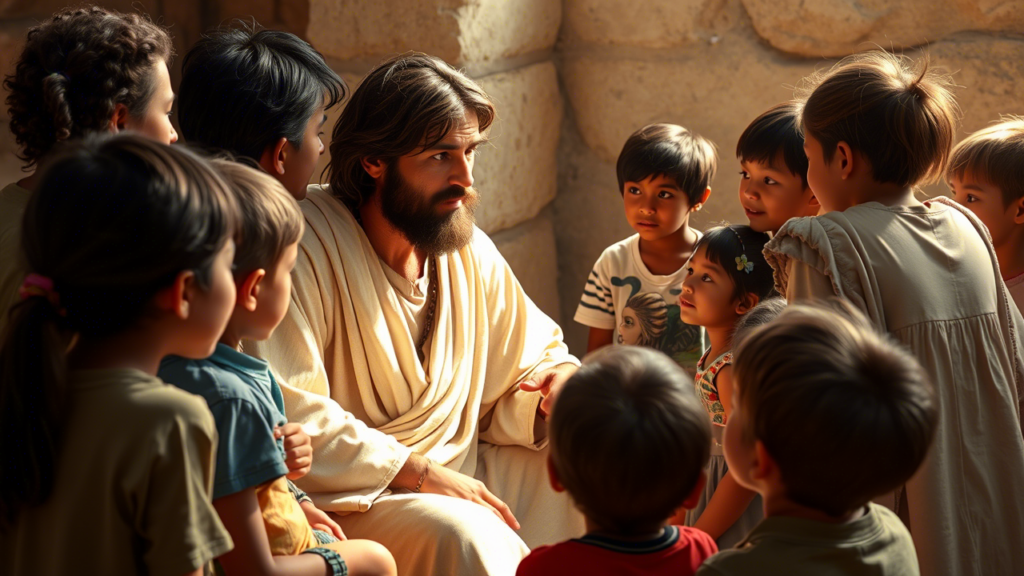Heschel Centre for Catholic-Jewish Relations at the Catholic University of Lublin
20 October, 2024
6 min
Humility Should Begin With The Great People: The Understanding Of Humility In The New Testament And In The Jewish Sources
“Spiritual leaders should be aware that they are not free from weakness, and therefore they must be humble and know that they are far from being perfect. All of these ideas seem to be inscribed in the stream of Jewish thought, and they are also inscribed in the Jewish sources that deal with the theme […]

Also in Hebrews 4:15 it is written: “For we do not have a high priest who is unable to sympathise with our weaknesses, but one who has been tested in every way, yet without sin”. These quotations show us that spiritual leaders should be aware that they are not free from weakness, and therefore they must be humble and know that they are far from being perfect. All of these ideas seem to be inscribed in the stream of Jewish thought, and they are also inscribed in the Jewish sources that deal with the theme of humility.
In the book of Numbers 12:3, the great humility of Moses is described as follows: “Now the man Moses was very humble, more humble than anyone else on earth.” His humility needs some explanation: it was Moses who received the Torah on Mount Sinai; he was with God on the mountain for forty days and forty nights, and even before that he was the one who brought the children of Israel out of Egypt, and he could talk to God whenever he wanted. Yet the Bible testifies that “There was no prophet in Israel like Moses, whom the Lord knew face to face” (Deut 34:10). On the other hand, we learn that Moses was the most humble man in the universe! The answer is that the greater and more important the person, the more humble they are expected to be. This ties in nicely with what Jesus says: “Whoever wants to be first among you will be the slave of all. (Mk 20, 27)”.
In Psalm 33, 16-18 we read: “A king is not saved by a great army, nor a warrior delivered by great strength. Useless is the horse for safety; despite its great strength, it cannot be saved. Behold, the eye of the LORD is upon those who fear him, upon those who count on his mercy.” The king and the warrior does not win with the greatness of their power and his valor, but by recognizing that salvation and victory come from God and not from him. This recognition that the strength and the solution does not come from us is an important element in the value of humility.
Let us turn for a moment to the example of Rabbi Zadok, who lived in Jerusalem at the end of the Second Temple period and was a contemporary of Jesus. Did he and Jesus meet in the streets of the city? We have no way of knowing. In any case, Rabbi Zadok is regarded as one of the righteous of Jerusalem. He used to say: “Do not turn Torah into a crown to be proud of.” In other words, do not study Torah in order to be honoured by the words of Torah and to gain additional benefits such as honour and greatness (Pirkei Avot 4:5). In the same chapter of Pirkei Avot, after Rabbi Zadok’s statement, there is a quote from another rabbi named Rabbi Levits from the city of Yavne: “Be very low in spirit, for one’s hopes are high.” The meaning of low spirit is humility of the highest order – to feel like a poor and destitute person. Why? Because the end of man is to be at the mercy of worms and to rot in the grave!
The one who follows the way of Rabbi Levits is Rabbi Moshe ben Maimon. According to him, one should take a balanced approach of the middle way and avoid extremes, except in the case of humility. In this case, one should not take the middle path and must distance oneself from pride, “One must hold oneself lowly and with very unassuming spirit” (The Book of Knowledge 2:3).
On the other hand, in the Midrash Tosefta in Tractate Shabbat (7:16) there is a sharp criticism of Rabbi Zechariah ben Abikils. The Midrash argues that his humility caused the destruction of the Temple because he did not want to use his authority to protest against the injustices that happened at the end of the Second Temple period, apparently out of humility. The point of the criticism against him is that one should know how to be humble and not use humility as an excuse to avoid the public involvement necessary for the sake of justice and honesty.
According to the stories of the righteous and the ancient Jewish tradition, there are 36 hidden righteous, thanks to whom the world exists. The idea of 36 hidden tsadikim was one of the ideas that gave rise to the Hasidic movement in the 18th century. According to this belief, even a person who looks simple or ordinary, who does not seem important on the outside, can be a great tsaddik without the people around him being aware of it.
A well-known Hasidic story tells of the founder of the Hasidic movement, Rabbi Israel of Mezhibozh in Ukraine, who one day received a revelation from heaven telling him that there was a man of a higher spiritual level than himself who worshipped God more than he did. Rabbi Israel took some of his disciples on a trip to a distant forest, and as they entered the forest he saw a country boy of very simple appearance praying to God and saying: “Lord of the world, I love you so much and I want to be closer to you, but I don’t know how to read and I don’t know how to pray in our customary way but I can play the flute in your honour. That is what I can do. Then he took a flute from his backpack and began to play a beautiful melody in honour of God. Rabbi Israel then said to his disciples: “Now we all understand why he is more important in heaven than I am.”
About the author:
Shlomo Libertovsky – a Torah lecturer at Beth Shemesh and a member of Nostra Aetate 4 in Jerusalem, an ecumenical organization dedicated to Jewish-Catholic dialogue.
Related

Explaining Holy Week to Our Children: A Journey of Faith and Hope
Laetare
11 April, 2025
4 min

Christian Leadership in Business: A Model of Humility, Justice, and Solidarity
Javier Ferrer García
10 April, 2025
3 min

Guiding Our Decisions with God’s Will in Daily Life
Patricia Jiménez Ramírez
10 April, 2025
4 min

What are you going to do with your life?
Luis Herrera Campo
10 April, 2025
2 min
 (EN)
(EN)
 (ES)
(ES)
 (IT)
(IT)

